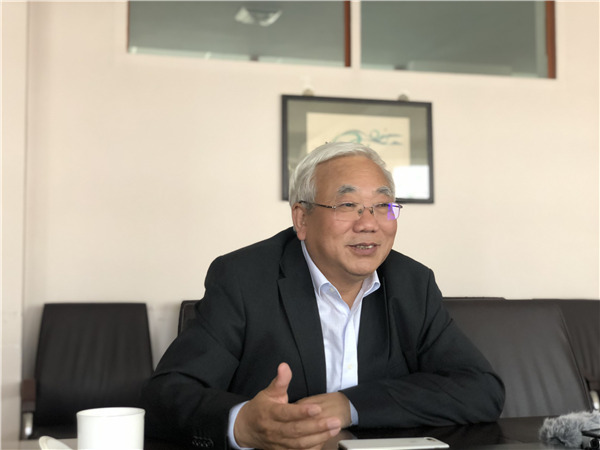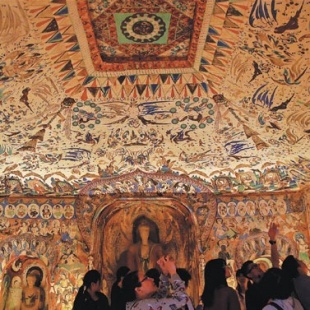Carving out a niche


"I had taken the relevant courses as part of my undergraduate studies, but I only had a basic understanding of the discipline," Zheng says. "It wasn't until I started teaching and spent a year taking advanced training at Peking University and Capital Normal University that I really got to learn about the latest developments in this discipline."
Entrusted by the university to develop Dunhuang studies as a subject in its own right, Zheng made extensive efforts to explore the various fields pertaining to the culture of Dunhuang.
He started with geography and went on to study history. He then reviewed the manuscripts unearthed at Dunhuang at the turn of the 20th century, with each sub-field taking him years to study.
"There are so many areas for scholars to research in Dunhuang studies. To learn more about a single aspect, researchers must familiarize themselves with all sorts of literature and look for references across a wide range of material," Zheng says.
He helped the university build a repository of publications and documents, which now includes more than 100,000 books and periodicals, providing a rich collection of publications in Chinese and a small sample of English-language works.
Zheng says that one of the many obstacles faced by people studying Dunhuang is the language barrier. Many of the documents unearthed there at the turn of the last century were written in ancient languages used by ethnic groups from western China. He has devoted a great deal of his time and effort to research these papers.



































